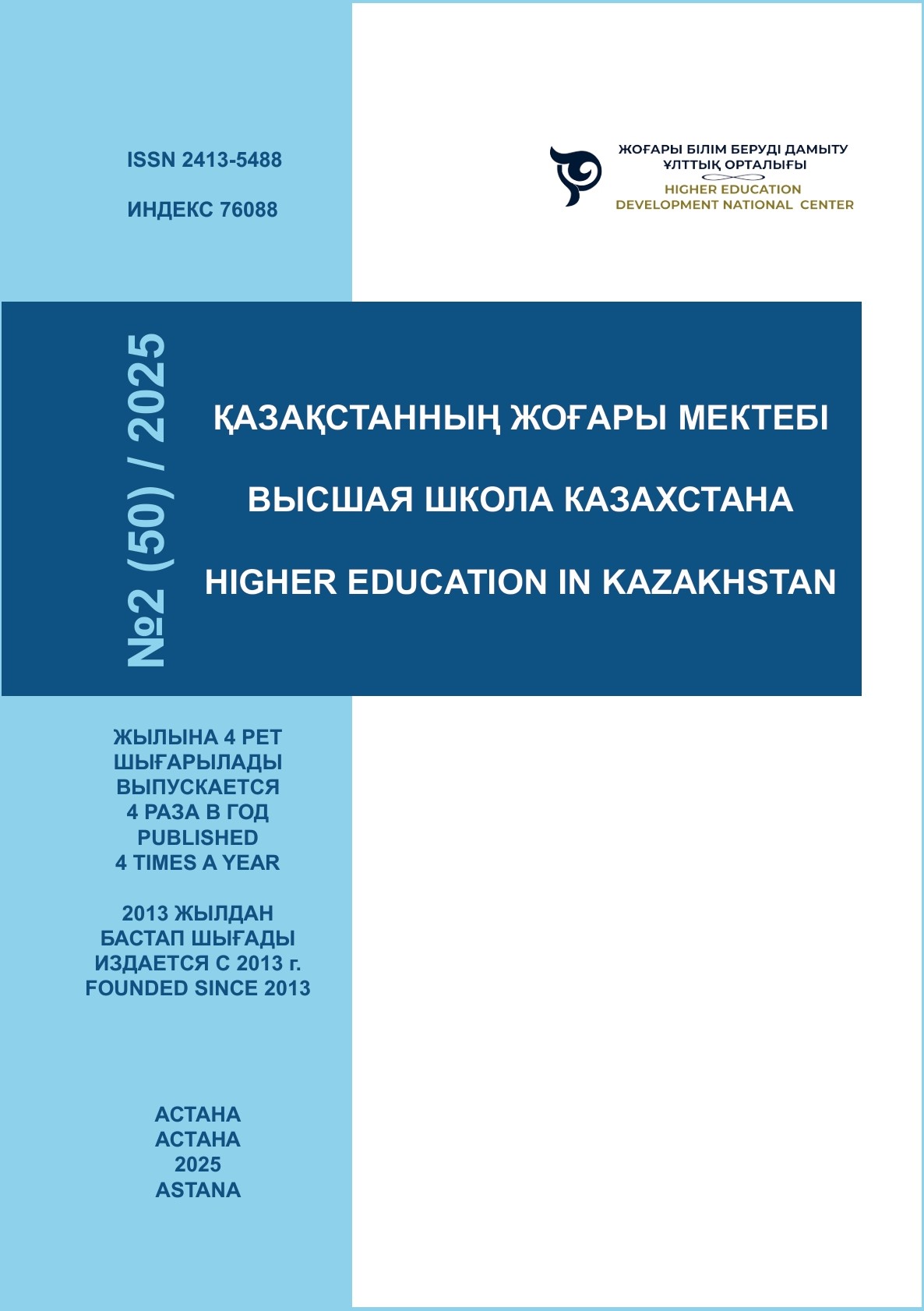APPLICATION OF THE CRITERION-BASED ASSESSMENT METHODIN TEACHING A FOREIGN LANGUAGEAT A TECHNICAL UNIVERSITY
DOI:
https://doi.org/10.59787/2413-5488-2025-50-2-51-62Abstract
This article describes the conditions of modernization changes in the field of higher education concerning the use of the Common European Framework of Reference for Languages (CEFR) and criterion-based assessment (CA) in teaching a foreign language at a technical university. The purpose of the study is to substantiate the need and effectiveness of using CA in the process of teaching foreign languages to students of technical educational programs, as well as to identify the problems and prospects for its implementation in the practice of higher education. The prerequisites for the introduction and successful use of criterion-based assessment of students' educational results are delineated. The study reports that criterion-based assessment is a process based on clearly defined criterion that provide rational assessment of students' achievements and formation of their competencies necessary for the use of a foreign language in professional activities.
The article presents a review of the works of foreign and domestic scholars, discusses their views and ideas, which are the theoretical basis for this study. The characteristics of the structure of criterion-based assessment are given, including its main concepts, purpose, tasks and functions. The article presents an analysis of a survey of the faculty of the Department of Foreign Languages on the introduction and implementation of criterion-based assessment in teaching English to students of technical specialties at the Karaganda Technical University named after A. Saginov. The difficulties that appeared during the introduction of criterion-based assessment are identified, recommendations are proposed for solving the problems that have arisen and further improving the application of the criterion-based assessment method in the educational process.
References
Aitpukeshev, A. T., Kussainov, G. M., & Saginov, K. M. (2014). Assessment of learning outcomes: Methodological guide. Astana: Center for Pedagogical Excellence. 96 p.
Black, P., & Wiliam, D. (2009). Pedagogical research: Formative assessment. British Research Journal, 29, 5–31.
Bloom, B. S. (1968). Learning for mastery. Los Angeles: University of California, Center for the Study of Evaluation. 26 p.
Goodrich Andrade, H. (2000). Using rubrics to promote thinking and learning. Educational Leadership, 57(5), 13–18. https://www.semanticscholar.org/paper/Using-Rubrics-To-Promote-Thinking-and- Learning.-Andrade/141285779.
Concept of implementing the criterion-based assessment system for students’ academic achievements of the Autonomous Educational Organization "Nazarbayev Intellectual Schools". (2012). Astana: AEO NIS. ~40 p.
Kenzhetayeva, R. O. (2021). Professional training of future teachers for criterion-based assessment of primary school students’ academic achievements (Doctoral dissertation abstract). Almaty: Abai Kazakh National Pedagogical University. 30 p.
Krasnoborova, A. A. (2010). Criterion-based assessment as a technology for forming students' educational and cognitive competence (Doctoral dissertation abstract). Nizhny Novgorod: Minin University. 23 p.
Law on Education of the Republic of Kazakhstan (with amendments and additions, dated September 10, 2023). https://online.zakon.kz/Document/?doc_id=30118747&pos=3;-106#pos=3;-106
Marzano, R. J. (2006). Classroom assessment & grading that work. Thousand Oaks, CA: Corwin Press. 189 p. https://us.corwin.com/en-us/nam/book/designing-new-taxonomy-educational-objectives
Mozhayeva, O. I., Shilibekova, A. S., & Ziedenova, D. B. (2017). Methodology of the criterion-based assessment system for students’ academic achievements: Educational and methodological manual. Astana: Nazarbayev Intellectual Schools AEO. 136 p.
Patton, M. Q. (1990). Qualitative evaluation and research methods (2nd ed.). Newbury Park, CA: Sage Publications. 532 p.
Popham, W. J. (2008). Transformative assessment. Boston: Allyn & Bacon. 150 p. https://www.worldcat.org/title/classroom-assessment-what-teachers-
need-to-know/oclc/30594408.
Regulation on the Academic Policy of NJSC "Abylkas Saginov Karaganda Technical University", approved by the Academic Council (Protocol No. 4, October 30, 2023). https://www.kstu.kz/wp-content/uploads/2023/04/Akademicheskayapolitikal.pdf
Shakirov, R. Kh., Burkitova, A. A., & Dudkina, O. I. (2012). Assessment of students' academic achievements: Methodological guide. Bishkek: Bilim. 64 p.
Shepard, L. A. (2000). The role of assessment in a learning culture. Educational Researcher, 29(7), 4–14.
State Compulsory Standard of Higher and Postgraduate Education (approved by Order No. 2, July 20, 2022). https://adilet.zan.kz/rus/docs/V2200028916
Zemlyanskaya, E. N. (2020). Criterion-based assessment of university students’ educational achievements. Pedagogy: Issues of Theory and Practice, (2).

Downloads
Published
Versions
- 2025-06-30 (2)
- 2025-06-20 (1)





